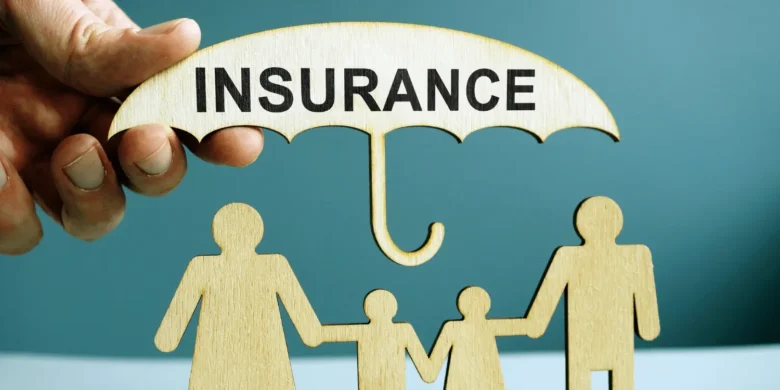Insurance can often feel like a complex topic, filled with jargon and confusing policies. Yet, understanding the basics is crucial for protecting yourself, your family, and your assets from unexpected events. Think of insurance as a financial safety net. You pay a regular fee, called a premium, to an insurance company. In return, the company agrees to provide financial assistance if something unfortunate happens, like an accident, illness, or property damage. This guide will walk you through the essential types of insurance everyone should know about.
Introduction to Insurance
At its core, insurance is a contract, represented by a policy, where you receive financial protection against potential losses. The concept is based on risk sharing. A large group of people contribute to a central fund, and those who experience a covered loss can draw from it. This system allows individuals and businesses to manage the risk of significant, unpredictable expenses. Without it, a single unexpected event could lead to financial devastation. Understanding your policy—what it covers (coverage), what it doesn’t (exclusions), how much you pay out-of-pocket (deductible), and your regular payments (premiums)—is the first step toward making informed decisions about your financial security.
Types of Insurance
There are many different kinds of insurance available, each designed to protect against specific risks. While some are mandatory, like auto insurance in most states, others are optional but highly recommended. The main categories include health, auto, home or renter’s, and life insurance. Each type serves a unique purpose, from covering medical bills to protecting your home or providing for your loved ones after your death. Deciding which policies you need depends on your individual circumstances, such as your age, lifestyle, assets, and whether you have dependents.
Importance of Health Insurance
Health insurance is arguably one of the most critical types of coverage. Medical costs can be incredibly high, and an unexpected illness or injury can quickly lead to substantial debt. Health insurance helps cover these expenses, including doctor visits, hospital stays, prescription drugs, and preventive care. Policies vary widely in what they cover and how much they cost. Some plans have lower monthly premiums but higher deductibles, while others have higher premiums but cover more of your costs. Having a reliable health insurance plan provides peace of mind, ensuring you can access necessary medical care without facing a financial crisis.
Basics of Auto Insurance
If you own a car, you are likely required by law to have auto insurance. This policy protects you financially in the event of an accident. The most basic type is liability coverage, which pays for damages to another person’s vehicle or their medical expenses if you are at fault. You can also get collision coverage, which pays for repairs to your car after an accident, and comprehensive coverage, which covers non-accident-related damage from events like theft, storms, or vandalism. The cost of your auto insurance depends on factors like your driving record, the type of car you drive, and the amount of coverage you choose.
Understanding Home Insurance
For homeowners, a home insurance policy is essential for protecting what is likely their biggest investment. This insurance covers damage to your house and personal belongings from events like fire, theft, or severe weather. It also includes liability protection, which covers you if someone is injured on your property. If you rent, renter’s insurance provides similar coverage for your personal possessions and liability, though it doesn’t cover the building itself. Whether you own or rent, having this protection ensures you won’t have to bear the full cost of replacing your belongings or covering legal fees after an unexpected incident.
The Role of Life Insurance
Life insurance is a vital tool for financial planning, especially if you have people who depend on your income, like a spouse or children. A life insurance policy pays out a sum of money to your designated beneficiaries upon your death. This can help them cover funeral expenses, pay off debts, and maintain their standard of living. There are two main types: term life insurance, which covers you for a specific period, and whole life insurance, which lasts your entire lifetime and builds cash value. Choosing the right policy ensures your loved ones are financially secure even when you are no longer there to provide for them.
Securing Your Financial Future
Understanding these insurance essentials is the foundation of a solid financial plan. Each type of insurance plays a unique role in safeguarding you from different kinds of risk. By taking the time to assess your needs and find the right policies, you can build a comprehensive safety net that protects your health, property, and loved ones. While paying premiums might seem like just another expense, the security and peace of mind it provides are invaluable.
Frequently Asked Questions
1. What is an insurance premium?
An insurance premium is the amount of money you pay regularly (monthly, quarterly, or annually) to an insurance company to keep your policy active.
2. What is a deductible?
A deductible is the amount of money you must pay out-of-pocket for a covered loss before your insurance company starts to pay. For example, if you have a $500 deductible on your auto insurance and get into an accident that costs $2,000 to repair, you would pay the first $500, and your insurer would cover the remaining $1,500.
3. Do I need life insurance if I’m young and single?
While life insurance is most critical for those with dependents, it can still be beneficial for young, single individuals. It can help cover outstanding debts, such as student loans or a mortgage, so that the burden doesn’t fall on your family. Plus, purchasing a policy when you’re young and healthy often means you’ll get lower premium rates.
4. What’s the difference between collision and comprehensive auto insurance?
Collision insurance covers damage to your vehicle resulting from a collision with another car or object (like a fence or a tree). Comprehensive insurance covers damage to your vehicle from non-collision events, such as theft, vandalism, fire, or natural disasters.
5. Is home insurance required by law?
Home insurance is not typically required by state or federal law. However, if you have a mortgage on your home, your lender will almost always require you to have a homeowner’s insurance policy to protect their investment.




